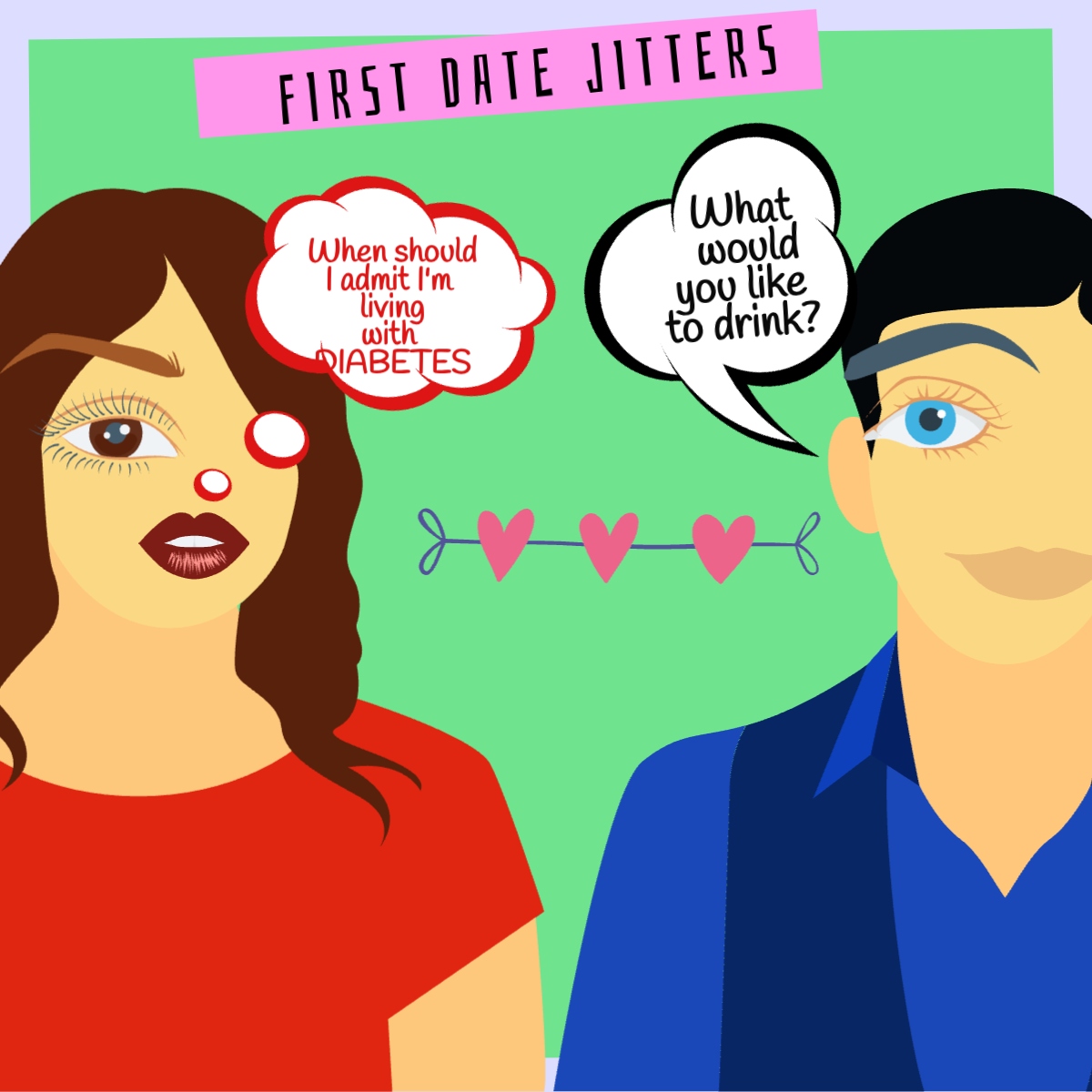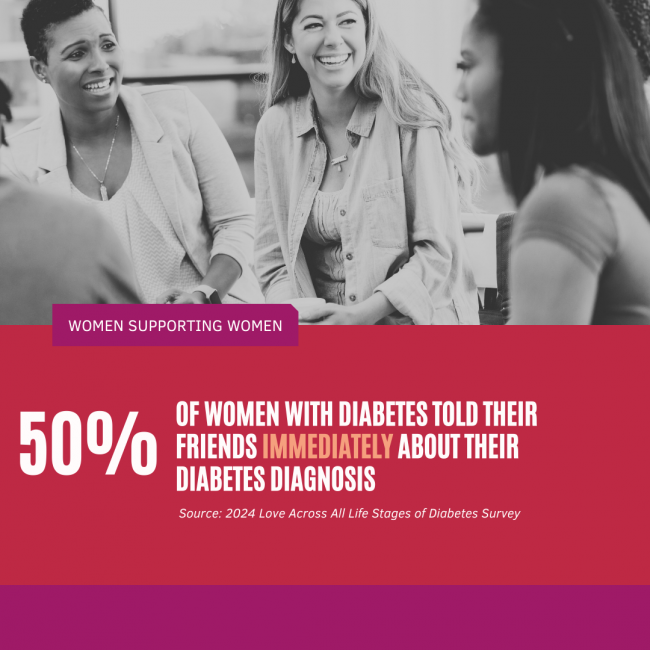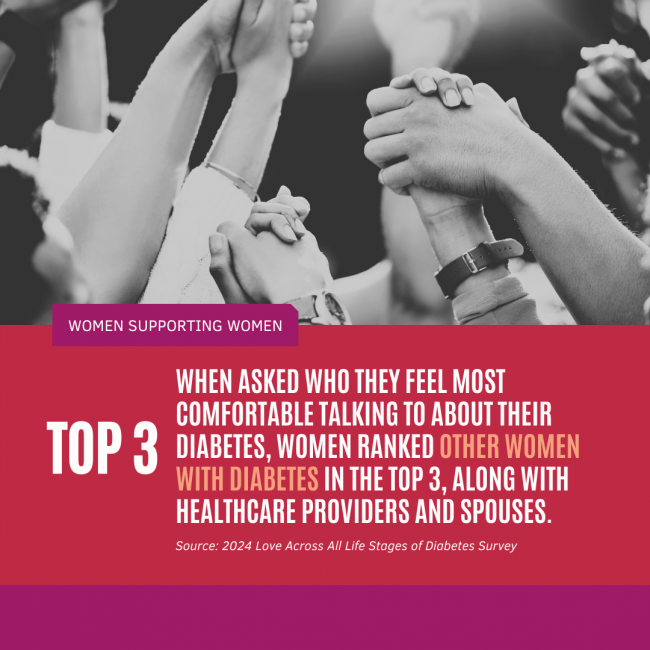 This year, Divabetic is working with a team of experts to show people living with, at risk and affected by diabetes how to embrace the holidays without compromising their self-care.
This year, Divabetic is working with a team of experts to show people living with, at risk and affected by diabetes how to embrace the holidays without compromising their self-care.
February’s Diabetes Late Nite podcast encourages listeners to practice ‘self-love’ on Valentine’s Day and also features George Michaels greatest hits.
Valentine’s Day puts the emphasis on love for someone special in your life. But did you ever think that, hey, YOU are someone special in your life?
Why not make this day about loving yourself and your health? You can’t love someone else until your truly love yourself.
It’s difficult to love yourself and your diabetes health if you’re constantly feeling deprived of the foods you love. The Diabetic Pastry Chef, Stacey Harris who is living with type 2 diabetes wants you to have your cake and eat it, too, without sacrificing your diabetes self-care.
Stacey has created recipes for making breads, cakes and other desserts diabetic-friendly by swapping out the sugar, blending the flour and cutting the milk carbohydrates. Here’s one of our favorite Diabetic Pastry Chef recipes for Valentine’s Day:
Mini Rose Heart Cookies Recipe by The Diabetic Pastry Chef, Stacey Harris
Ingredients:
1 16 oz. box sugar-free yellow cake mix
1 15 oz. tub sugar-free vanilla frosting
Mini edible organic rosebuds
Powdered sugar substitute or powdered sugar, to garnish
Directions:
Prepare cake mix according to box directions; bake and cool.
Crumble the cooled cake with your hands a bit and add to the bowl of a standing mixer. Turn mixer to medium speed to fully crumble the cake; this should take 1 to 2 minutes.
Stop mixer and add frosting one (1) heaping Tablespoon at a time. Turn mixer back on and continue to beat at low speed until well mixed. Turn off mixer and add another heaping Tablespoon of frosting.
Turn on mixer again and continue to beat at low speed until well mixed. Continue this procedure just until dough holds together—3 or 4 heaping Tablespoons should do. (You may need to add a little more or a little less. You’ll know when the dough holds together by turning off the mixer, grabbing the dough and pressing it together with your hands until it forms a cohesive ball. This is the same method that is used to make cake balls or cake truffles.)
Remove dough from mixer and place on a floured board. With a rolling pin, roll dough out thin, and cut with a mini heart cookie cutter. Place the hearts onto a greased cookie sheet and bake in a preheated 350-degree oven until lightly browned, about 20 minutes or so. Remove cookies from oven and place on a wire rack to cool. (The cookies will harden as they cool.)
Dab a bit of the remaining frosting onto the center of each cooled cookie. Adhere a mini edible organic rosebud to the frosting and let harden. Sprinkle cookies with powdered sugar substitute or powdered sugar. These cookies can also be sandwiched with sugar-free frosting.
Yield: 43 mini sandwich cookies or 86 mini cookies
Stacey Harris has been baking and collecting recipes since she was a teenager. Her cookbook
“The Diabetic Pastry Chef” offers a healthier approach to baking for diVabetics.
The happy healthcare host, Mr. Divabetic and the Diabetes Late Nite team are honored to participate in the Second Diabetes Podcast Week in support of the Spare a Rose, Save a Child campaign” on February’s Diabetes Late Nite podcast scheduled for Tuesday, February 7, 2017, 6 PM, EST.
“I’m thrilled to support such a worthwhile cause by participating in Diabetes Podcast Week again this year, ” says Max ‘Mr. Divabetic’ Szadek.”We’ve got a really wonderful show planned featuring guests Chef Ward Alper ‘The Decadent Diabetic’ and Diabetes Advocate and ‘Rich In Love’ fashion blogger, model and diabetes advocate Doris Hobbs along with many of George Michael’s greatest hits.”
The “Spare a Rose, Save a Child” campaign encourages people to buy one less rose this Valentine’s Day and donate the value of that flower to children with diabetes. Donations go to Life for a Child, an International Diabetes Federation program which provides life-saving diabetes supplies, medication, and education that children in developing countries need to stay alive.

Don’t miss Diabetes Late Nite inspired by George Michael on Tuesday, February 7, 2017, 6-7 PM, EST. Enjoy our first-ever Valentine’s Day Party featuring Chef Ward Alper aka ‘The Decadent Diabetic’, ‘Rich In Love‘ fashion blogger Doris Hobbs, the Charlie’s Angels of Outreach, Poet Lorraine Brooks and Mama Rose Marie
Learning to accept yourself for who you are is the most important step to self-love. Stop comparing yourself to others and learn to embrace the person you are.
You have beautiful qualities, both physical and emotional, that draw people to you. You don’t need to look or talk or act like anyone else. We all offer the world something different. That’s what makes it so beautiful.
Let our team of experts show you how to embrace Valentine’s Day without feeling like you’re compromising your diabetes self-care. Don’t let diabetes dim your Dazzle!
This podcast is part of Diabetes Podcast Week in support of the ‘Spare A Rose, Save A Child’ campaign. Please join us! #Dpodcastweek















 This year, Divabetic is working with a team of experts to show people living with, at risk and affected by diabetes how to embrace the holidays without compromising their self-care.
This year, Divabetic is working with a team of experts to show people living with, at risk and affected by diabetes how to embrace the holidays without compromising their self-care.
